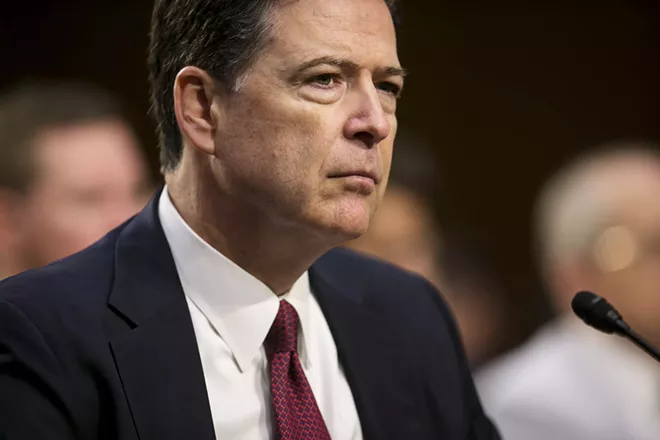
New York Times News Service
WASHINGTON — The Justice Department declined to prosecute former FBI Director James Comey after determining that two memos he wrote about his interactions with President Donald Trump contained classified information and examining whether he mishandled the documents, according to people familiar with the matter.
The FBI upgraded the memos to confidential — the lowest level in the government’s system of classifying information — shortly after the president fired Comey in May 2017, the people said. Comey had kept several memos at his home and shared one with a friend when he thought they contained only routine information, but the determination that some memos included classified material prompted the investigation into whether he mishandled them.
Prosecutors quickly determined the case did not warrant charges, the people said. It is not clear which memos spurred the inquiry, but the upgrade to confidential dealt with foreign relations, a person familiar with the classification review said.
The Justice Department’s inspector general, Michael E. Horowitz, has been investigating Comey’s handling of the memos but has said little about the inquiry. A report on his findings is expected to be delivered by the fall.
Comey’s memos, first revealed in the days after his dismissal two years ago, jolted Washington and infuriated the president with their accounts of Trump’s demands of loyalty from law enforcement. Comey later told lawmakers that he had sought to make them public in part to prompt the appointment of a special counsel.
Comey wrote several memos after he met with Trump in the first days and weeks of his presidency, saying later that he worried that the president “might lie” about their discussions. Trump and his allies accused Comey of illegally leaking the memos as they tried to undermine his standing as a key witness in the investigation by the special counsel, Robert Mueller.
Trump’s request to Comey that the FBI end an investigation into Michael Flynn, the president’s first national security adviser, was revealed in a New York Times article that cited one of the memos. The Justice Department announced the appointment of a special counsel the next day.














